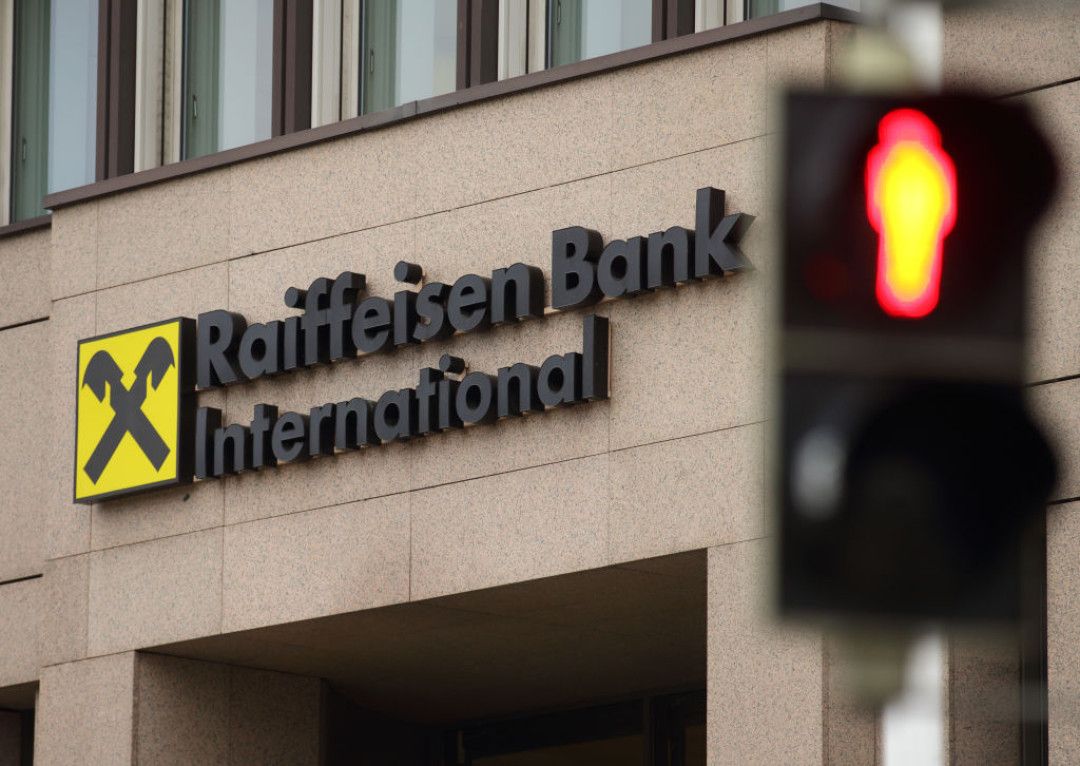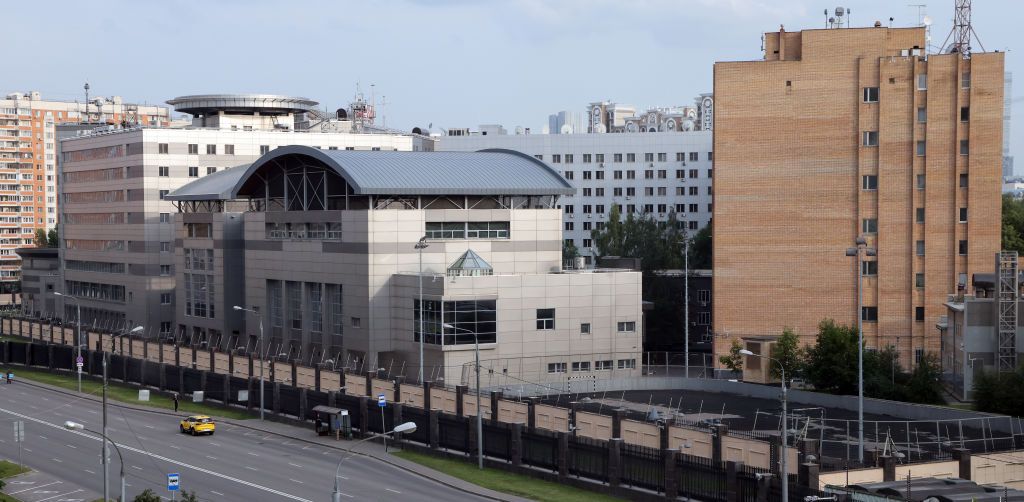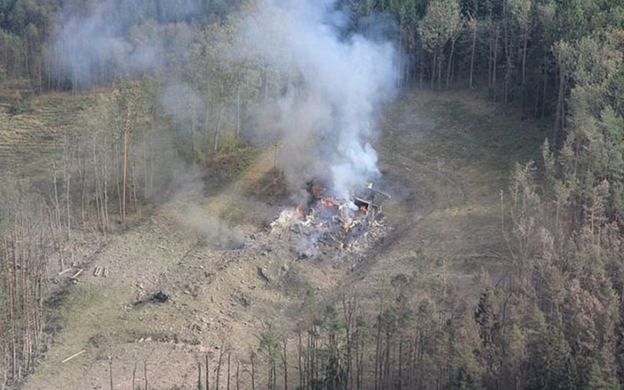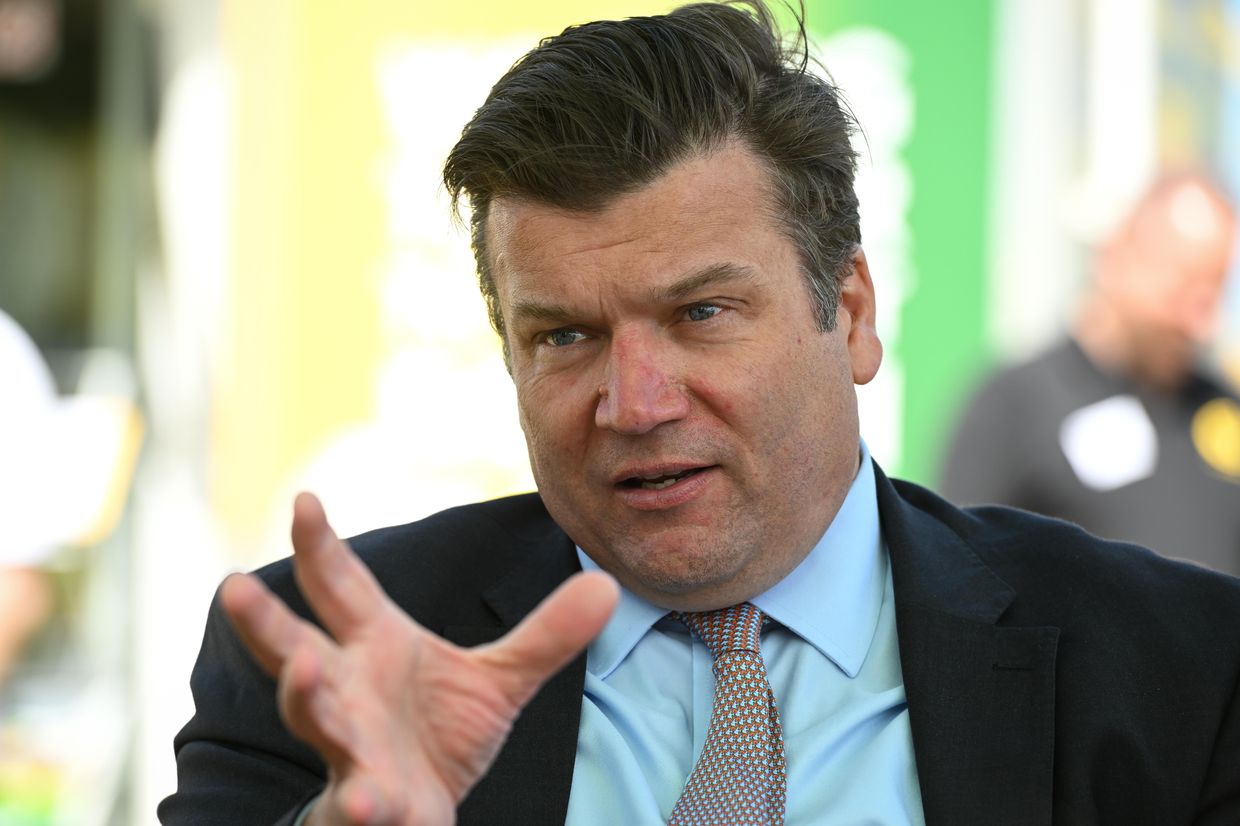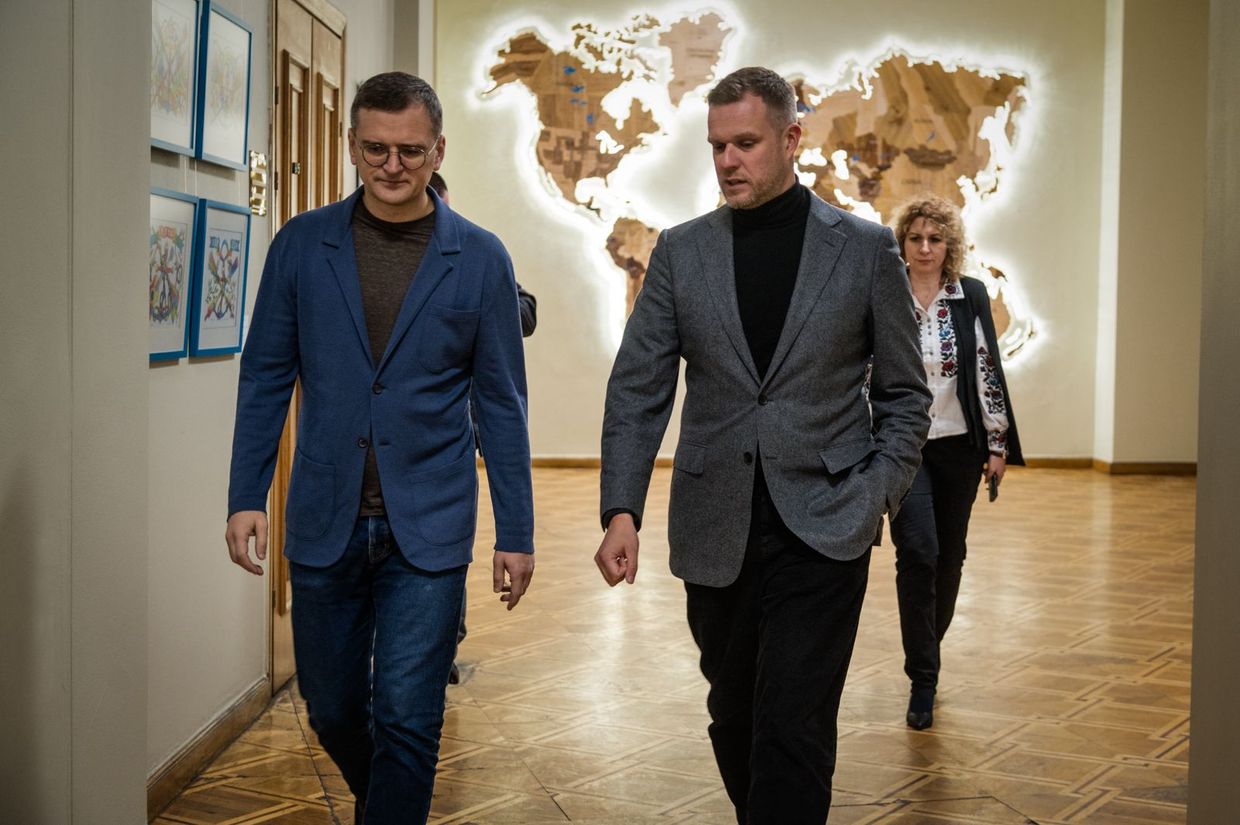Ukraine war latest: Attack on Odesa kills 4, injures 29

Key developments on April 29:
- Attack on Odesa kills 4, injures 29
- Military intelligence: Over 18,000 Russian troops of Southern Military District have deserted
- Military: Ukraine regaining control over Nestryha Island in Kherson Oblast complicates Russian advances
- NATO Secretary-General Stoltenberg in Kyiv in surprise visit
- Air Force: Poland capable of protecting skies over western Ukraine but political will needed
At least four people were killed and 29 were injured in a Russian missile strike on Odesa that damaged civilian infrastructure, the State Emergency Service reported on April 29.
Three women and one man were among the dead, Odesa Oblast Governor Oleh Kiper said.
Two children were among the injured and a dog was also killed, according to the local authorities.
Psychologists from the State Emergency Service and National Police provided help to 63 people at the site of the attack.
Media reports said one of those injured was Serhiy Kivalov, a discredited ally of pro-Russian President Viktor Yanukovych ousted following the 2014 EuroMaidan Revolution.
Kivalov, the former lawmaker and head of the Central Election Commission, lives in the mansion that caught fire as a result of the strike, according to images shared by Suspilne.
The mansion is known to locals as "Kivalov's Castle" or the "Harry Potter Castle."
The State Emergency Service reported that firefighters had eliminated a blaze in the building's roof.
Military intelligence: Over 18,000 Russian troops of Southern Military District have deserted
Soldiers of Russia's Southern Military District, whose units are deployed in Ukraine, are deserting their posts in increasing numbers, Ukraine's military intelligence agency (HUR) said on April 29.
According to many observers, low morale has been a recurring problem for the Russian Armed Forces fighting in Ukraine.
Over 18,000 soldiers of the Southern Military District have allegedly deserted, with around 12,000 of them belonging to the 8th Combined Arms Army – a unit often deployed in hostilities in eastern Ukraine.
Of this number, around 10,000 are mobilized conscripts and 2,000 contract soldiers, the military intelligence agency said.
The U.K. Defense Ministry said earlier in April that Russian troops in Ukraine are mainly staffed with contract soldiers and reservists mobilized in late 2022, but conscripts are often pressured to sign contracts.
In the Russian 58th Combined Arms Army, the desertion rate is at around 2,500 troops, according to the agency's statement.
Kyiv has been actively encouraging troops of the Russian invading army to desert or even defect to the Ukrainian side. The Ukrainian military intelligence service launched a hotline in September 2022 to help Russian soldiers willing to surrender.
Military: Ukraine regaining control over Nestryha Island in Kherson Oblast complicates Russian advances
Ukraine's control over Nestryha Island in Kherson Oblast is tactically important and will make it more difficult for Russian forces to approach Ukrainian positions, Dmytro Pletenchuk, a spokesperson for the Southern Defense Forces, told Hromadske Radio on April 29.
Commander-in-Chief Oleksandr Syrskyi said on April 28 that Ukrainian troops had taken control of Nestryha Island in the Dnipro River delta in Kherson Oblast and advanced near the village of Veletenske.
Nestryha Island was considered a "gray zone" and is the last in a group of small islands followed by the river mouth, Pletenchuk said, saying that the re-established control holds "tactical importance."
Russian troops use locations such as the islands in Kherson Oblast to get closer to Ukraine's positions, the spokesperson added.
"This (control over Nestryha Island) is primarily important for the quality of counter-sabotage measures. This location has been cleared of possible enemy presence," Pletenchuk said.
Syrskyi said that Russian forces are trying to push Ukrainian troops out of Krynky in Kherson Oblast, but they are failing to do so. For months of heavy battles, Ukraine has reportedly repelled Russian attacks around the small village.
Ukraine's Armed Forces liberated Kherson and other regional settlements on the Dnipro River's west bank in November 2022. Russian forces were pushed to the east bank, from where they have since been firing at the liberated territories.
NATO Secretary-General Stoltenberg arrives in Kyiv in surprise visit
NATO Secretary-General Jens Stoltenberg arrived in Kyiv on April 29 for a previously unannounced visit.
Stoltenberg's third visit to Ukraine since the beginning of the full-scale Russian invasion took place amid a deteriorating situation on the battlefield.
The NATO secretary-general said earlier that the almost seven-month delay in U.S. assistance for Kyiv "has had real consequences."
Due to the lack of artillery shells and air defenses, Ukraine lost a key front-line city of Avdiivka in February and retreated west from the villages of Berdychi, Semenivka, and Novomykhailivka in Donetsk Oblast in late April.
President Volodymyr Zelensky said he and Stoltenberg discussed further cooperation between Ukraine and NATO and "the real unification of our forces."
"Ukraine and the alliance have reached the highest level of relations since our independence, but not the highest possible," the president said.
During a press conference in Kyiv, Zelensky said that the two also discussed an initiative to set up a special fund for financial support for Ukrainian defense worth 100 billion euros ($107.1 billion) for a period of five years.
"Allies do have the opportunity to put in place such an initiative. The details are very important to us, it is important that this is not at the expense of bilateral volumes, which are marked by our agreements on security guarantees," the president added.
Kyiv did not receive the much-desired invitation nor a firm deadline to join the alliance during the 2023 NATO summit in Vilnius, even though NATO took steps to tighten cooperation.
Stoltenberg invited Zelensky to join NATO's July summit in Washington, although U.S. Ambassador to NATO Julianne Smith said in February she did not expect the alliance to offer Ukraine a membership invitation.
"Ukraine’s rightful place is in NATO. Ukraine will become a member of NATO. The work we are undertaking now puts you on an irreversible path towards NATO membership, so that when the time is right, Ukraine can become a NATO member straightaway," Stoltenberg said.
Air Force: Poland capable of protecting skies over western Ukraine but political will needed
Poland is technically capable of protecting the skies over Ukraine's western regions with its air defenses, but this requires "political will," Air Force spokesperson Illia Yevlash said on April 29.
Russia's aerial attacks against western Ukraine have posed risks for neighboring Poland on several occasions. On April 27, Polish Prime Minister Donald Tusk said that one of the Russian projectiles fired at Lviv Oblast fell 15 kilometers (nine miles) from the Polish border.
"Theoretically and technically, it is possible since Poland has long-range air defense systems, namely Patriots. However, this would require political will, and this is already a topic for our diplomatic services," Yevlash said on television.
According to the spokesperson, such a step would allow Ukraine's military to focus its air defense capabilities to counter Russia's tactical aviation and glide bomb raids at the front lines.
Ukraine has a limited number of advanced Western air defense systems like Patriots, IRIS-T, or SAMP/T, which are crucial for protecting its population centers and infrastructure against regular Russian aerial strikes.
Kyiv has been leading talks with its partners to secure more of these systems not only to protect civilian targets but also to counter the Russian Air Force at the front. Glide bomb attacks have become a particularly serious problem for Ukrainian front-line troops.
Polish Deputy Foreign Minister Andrzej Szejna said in March that NATO is considering shooting down Russian missiles heading toward the alliance's territory.



